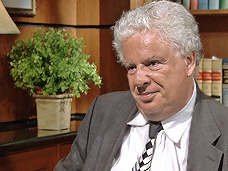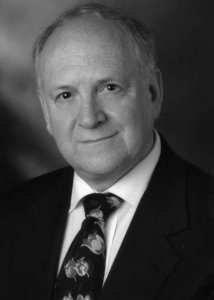
Martin Sieff
Martin Sieff is a Senior Fellow of the American University in Moscow and former Managing Editor, International Affairs at United Press International. He is the author of Cycles of Change: The Three Great Cycles of American History and the Coming Crises That Will Lead to the Fourth (2015) available from www.martinsieff.com
Arab leaders in the region see the danger clearly as Obama national security policymakers remain blind to it.
When it comes to the Middle East, Arabs have come to learn the hard way that American policymakers are like the Bourbon kings of France in the early 19th century: They have remembered nothing and they have forgotten nothing.
US President Barack Obama’s bold new strategy to fight the Islamic State (ISIS) is not a "new” strategy at all. Arguably it is not even a "strategy”.
This strategy basically continues to rely on the one thing the United States still does well in the Middle East — killing people from the air. But this strength also reveals four glaring weaknesses ISIS fighters have repeatedly taken advantage of.
First, while air power can hinder ground forces that lack any air power at all, it cannot eliminate them. All they have to do is wait out the highly expensive and exhausting air strikes and then they start moving forward again.
The Islamist forces know this. It is the secret to their success in Syria and to their retaking of Ramadi in Iraq. Second, the Obama administration, like the clueless George W. Bush-Cheney-Rumsfeld- Wolfowitz "military strategists” before them, keeps pouring out hundreds of billions of dollars to losers who promptly surrender, or run like blazes, turning over all those weapons to militants.
Third, like the arrogant Bush II neocons, the Obama team ignores the successful, vibrant viable and conservative pillars of order that stand in the region — Saudi Arabia, Turkey, Egypt, Jordan, Pakistan and the United Arab Emirates.
Fourth, the Obamaites keep falling for the same old favourite neocon game of weakening the stable and successful governments in the region.
Objectively, neoliberal and neoconservative American commentators — the Charles Krauthammers, Thomas Friedmans and Peter Beinarts — are the best friends ISIS could possibly have. Objectively, they are the Islamic State’s "agents of influence”.
After all, these are the people who made the fall of half of Iraq to the Islamists possible by insisting that the United States prop up a racist, Sunni-hating Shia regime in Iraq.
They insisted on disbanding the secular Ba’athist army in Iraq in 2003 under Paul Bremer — unquestionably the stupidest mistake of the war — a move that drove and continues to drive officers and experienced non-commissioned officers into becoming the backbone of ISIS forces today.
It was these armchair warriors who insisted that the US government fund the so-called democratic opposition forces in Yemen, Egypt, Libya and Syria. In every case, without exception, these "secular” forces proved to be Trojan horses for well-organised, extreme Islamists.
Today, the Americans, who were blind so long to the ISIS threat that they themselves were creating, are busy appeasing a far more formidable longer-term threat to the region.
They are playing into the hands of Iran at every level.
We see more familiar Bourbon-type "learn-nothing-forget nothing” patterns of behaviour here.
First, we see the repeated neocon hatred of and contempt for Arabs.
Second, we see the ignorant and arrogant refusal to take advice or heed warnings from the established governments in the region.
ISIS cannot be defeated without credible ground forces from major Arab state allies. Renewed romantic and ridiculous American love affairs with the Kurds will not do the trick.
Empowering Shia militias in Iraq will backfire disastrously. It will inevitably open the door to a future Middle East Anschluss — a forced "union” — in reality an annexation — of Iraq with Iran.
Arab leaders in the region see this danger clearly. Obama national security policymakers remain blind to it.
Friedrich Nietzsche said whom the gods would destroy, they first make mad.
The God of Islam and the God of Christianity certainly seem to feel that way about the policymakers of Washington.



_jpg/250px-ElbeDay1945_(NARA_ww2-121).jpg)







